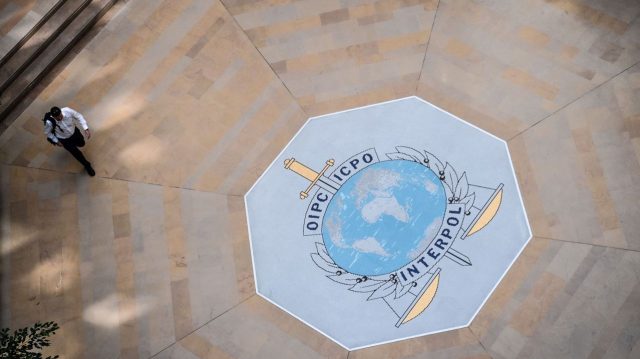
More than 250 suspected cybercriminals and digital scammers have been arrested across 14 different African nations in a mass operation conducted across the continent by Interpol, the international investigative agency announced Friday. The arrests, executed in late July through early August but made public by Interpol today, come amid a “sharp rise in digital-enabled crime,” the organization said in a press release. Interpol analysts identified nearly 1,500 victims of the targeted cybercrime operations, with estimated financial losses nearing $3 million.
Exploiting the ‘deepest human vulnerabilities’
Interpol’s continent-wide operation identified “IP addresses, digital infrastructure, domains and social media profiles” associated with “members of the scam syndicates,” said the BBC. These organizations “extract money from victims in romance scams” as well as through “so-called ‘sextortion’” schemes wherein targets are “blackmailed using explicit imagery.” Romance and sextortion scammers “deliberately exploit” some of the “deepest human vulnerabilities, such as trust and emotional attachment,” said Dmitry Volkov, the CEO of cybersecurity firm Group-IB, which partnered with Interpol for this investigation.
Dubbed Operation Contender 3.0, the investigation follows a similar 2024 inquiry into cybercrime networks in Nigeria and Côte d’Ivoire. It also comes on the heels of Operation Serengeti 2.0, which disrupted thousands of “malicious infrastructures” this summer, recovering nearly $100 million from victims targeted by ransomware and other online scams from June through August, Interpol said.
Interpol claims that the sweeping scale of these operations “illustrates both the scope of cybercrime in Africa” as well as the “critical role of international collaboration in tackling it,” said Business Insider, including “pooling intelligence across borders and integrating private-sector expertise” such as Group-IB. Of the nations involved, Ghana “accounted for the largest haul” of the crackdown, with nearly 70 arrests and hundreds of devices seized during the operation. In Senegal, 22 suspects were arrested for “operating a network that impersonated celebrities on social media and dating platforms,” while authorities in Côte d’Ivoire “dismantled a sextortion ring” with more than 809 victims “linked to the network.”
Cybersecurity as a ‘pillar of stability, peace’
The focus on cybercrime crackdowns across Africa comes as more Interpol partner nations raise the alarm about digital criminals operating within their borders. For a majority of those nations, “cyber-related offenses” account for a “medium-to-high share of all crimes, rising to 30% in Western and Eastern Africa,” Interpol said in a June press release that accompanied the fourth edition publication of the agency’s African Cyberthreat Assessment.
Interpol’s “growing caseload of cybercrime and child sex abuse” investigations have increased “divisions among its member countries,” said The Associated Press. “No single agency or country can face these challenges alone,” said Neal Jetton, the cybercrime director for Interpol, in the agency’s June press release.
Nor is it merely a question of technical prowess. Cybersecurity has become a “fundamental pillar of stability, peace, and sustainable development in Africa,” said Jalel Chelba, executive director of the African Union Mechanism for Police Cooperation, upon the report’s publication. Protection against cybercrime assures “digital sovereignty of states, the resilience of our institutions, citizen trust and the proper functioning of our economies.”
A series of stings disrupts major cybercrime operations as law enforcement estimates millions in losses from schemes designed to prey on lonely users






